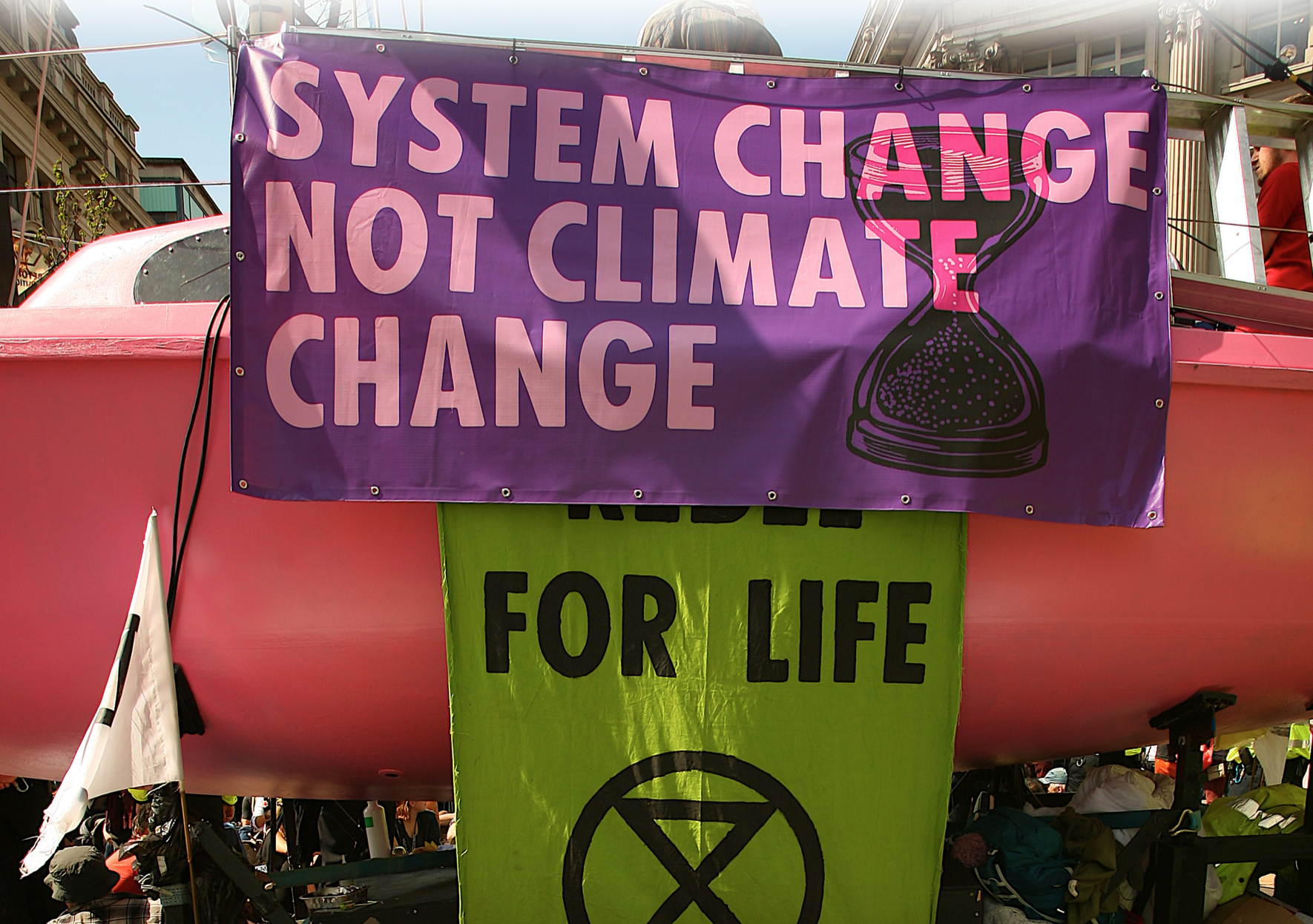"Extremism Rebellion"? What's extreme is our failing democracy, toxic economy and repression of dissent
Extinction Rebellion seems to be rousing the deep establishment to action - as witnessed by the Policy Exchange report released last week, entitled “Extremism Rebellion”. This piece in Open Democracy refutes the charges of the report one by one, which the authors boil down to this:
XR is anti-democratic
it is anticapitalist and anti-growth
its potential for violence deserves extreme repression.
Anti-democratic? Democracy is failing us
“Fossil fuel use and biodiversity loss are not only still rising: they are accelerating. Our existing governments and market institutions have not responded to the challenges of climate breakdown and ecological crises. They must be changed.
“A key source of anti-democratic deficiency is the corrupting influence of the climate denial industry. The most brazen examples are outright climate denial campaigns. Funded by large companies (led by the fossil fuel industry, but including others like Google and Amazon) through complex networks of think tanks and lobby groups, these campaigns span multiple decades and directly attempt to undermine the scientific basis of climate change.
“Our current, democratic systems have not been up to the task of countering this corruption. This is hardly surprising: representative democracies were often specifically designed to tilt the scales in favour of existing economic power, rather than the needs of the majority of the population.
“Extinction Rebellion’s proposed reforms of existing democratic institutions are in line with the latest academic findings and practical action in this area. Among others, political theorist Dr Marit Hammond has convincingly argued that our current democratic structures are insufficient and that more direct democracy is needed to combat the ecological crisis. Specifically, Extinction Rebellion are calling for Citizen Assemblies to deliberate on the best way forward on environmental crises.”
Anti-capitalist and anti-growth? Our current models are killing us
“Researchers have long studied the connection between economic growth and the environment. The ‘degrowth’ or ‘post-growth’ position is that a growing economy makes reducing environmental impacts harder at best, and impossible at worst.
“The core argument is that all economic activity is based on the use of energy to transform materials…The economy takes in energy and materials from the environment and emits wastes and pollution to the environment.
“When we investigate the material and energy basis of the economy, the empirical evidence shows that we must either reduce the size of the economy, or become much more efficient - using less energy and materials to make ever more stuff. We have no evidence that we are able to become efficient enough to reduce overall environmental impact whilst still growing the economy.
“Tim Jackson explains that to decarbonise while growing the economy, we would need to do so at a rate 50 times faster than we managed in the last decade. In short, ‘green growth’ requires the invention of miracle technology. Given the immediate and urgent risks we face, waiting for a miracle seems to us to be the more extreme position.”
A potential for violence? No, a collective cry repressed
“The Policy Exchange authors are claiming that any challenge to our current institutions of parliamentary democracy and capitalist profit-driven economies is extreme and deserves repression. The implication is that anyone who criticizes the structure of our polity and economy should be considered an extremist.
“Under such a view, almost all social movements are ‘extreme’. Both the suffragette and the civil rights movements critiqued democratic and economic institutions.
“Emmeline Pankhurst openly declared “We are here, not because we are law-breakers; we are here in our efforts to become law-makers.” Similarly, Martin Luther King Jr. stated, “One has a moral responsibility to disobey unjust laws.”
“Were they unreasonable extremists? Or rather are the conservative authors of the Policy Exchange report trying to place extreme limits on democratic dissent?”
We also note that two of the founders of XR, Roger Hallam and Gail Bradbrook, replied to the paper (Daily Telegraph) that broke news on the Policy Exchange report (the article is paywalled, but you can download our PDF here). The inclusion and humaneness of Roger and Gail’s closing paragraphs is striking:
Extinction Rebellion has become a symbol for urgent action in the UK and overseas [because] it has given permission for people from all walks of life to step forward and express their collective anxieties about the future. For some, this means breaking the law by carrying out acts of non-violent civil disobedience, though there are many other ways to be involved. All are called to act at this perilous and pivotal moment in time, in any way they can.
The history of this country suggests we need not despair. Britain was the cradle for industrialisation and in doing changed the world. It can do so again. Now is the time to think big. We need a ‘revolution’ in consciousness to overturn the system we live in, to strengthen our democracy, to find courage and give hope to our children.
To the people at Policy Exchange, we need to work together to face this, the door is open on our side. Enough wrongs.

